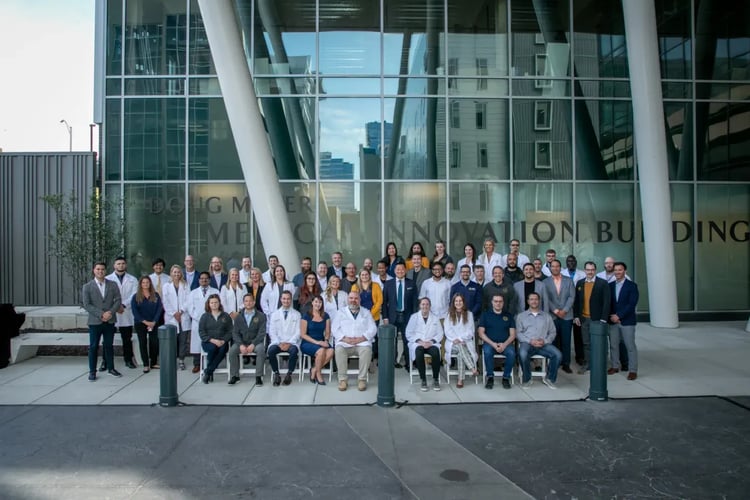Since 1976, KLA Corporation has played a significant role in the development of semiconductor manufacturing. KLA creates technology that transforms our future and shapes our current life.
Their technology — which uses deep science and physics-based imaging and sensing hardware, algorithms and AI software — helps semiconductor manufacturers identify flaws in their chips. Equipped with this critical information, they can better develop new chip technologies and manufacture functioning chips at large volumes.
And developing chips at large volumes is more important now than ever.
With the rise of digitalization, more and more products use chips — even some lightbulbs and coffee makers use chips these days. There’s been a sharp increase in the demand for semiconductors, and with that has come a rapid and robust investment in chip development.
The Semiconductor Industry Association released a report last month that projects a 203% growth in U.S. semiconductor chip manufacturing capacity from 2022 to 2032. Major corporations like Intel and Samsung are investing billions of dollars into chip development, including Intel’s historic $20 billion investment in chip factories in central Ohio.
KLA is another one of those companies investing in the chip industry in the Midwest. In late November 2021, KLA opened its new state of the art campus in Ann Arbor, Michigan. The company’s second U.S. headquarters is home to KLA’s AI and Modeling Center of Excellence, where engineers, physicists, data scientists and problem solvers strive to achieve the impossible.
Though KLA’s CEO, Rick Wallace, is an alumnus of the University of Michigan, growing KLA’s footprint in Michigan was no coincidence. Ultimately the location was chosen for its proximity to high-caliber engineering talent and its exceptional quality of life.

Image courtesy of KLA.
Additionally, Michigan’s history and recent explosion of innovation, especially within the automotive industry, was an enticing factor for a company looking to support industries with an increasing demand for chips.
“Semiconductors are at the core of innovation in all industries – from healthcare to consumer electronics, with automotive being a particularly innovative space, especially given the rise of advanced driver-assistance systems (ADAS) and promise of autonomous vehicles,” Wallace told Crain’s.
KLA was the first semiconductor company to join the Automotive Electronics Council. Now, the company works with the council to set qualification standards for electronics components in cars.
“KLA is at the forefront of advancing capabilities, increasing reliability, and eliminating defects in chips, all of which improves automotive electronics and advances autonomous vehicles. Michigan leads the nation in connected and automated vehicle testing projects and legislation. For us, being close to the automotive original equipment manufacturers is an advantage,” said Wallace.
To help continue growing and developing cutting-edge research and technology, KLA partnered with imec, the University of Michigan, General Motors and Washtenaw Community College to establish MSTAR: the Michigan Semiconductor Talent and Technology for Automotive Research initiative. The program focuses on developing the talent base and infrastructure necessary to accelerate advanced semiconductor applications for electrification and autonomous mobility, an industry especially taking off in Michigan.
“KLA is focused on investment in research and development to help address key challenges for automotive semiconductors,” Rick Wallace, President & CEO of KLA, said in a press release. “In 2019, KLA opened a second headquarters in Ann Arbor, putting us closer to automotive customers and the larger Michigan technology ecosystem. The STAR Michigan initiative accelerates our support for talent development, collaboration, and innovation in the region.”
As KLA continues to expand its operations, the company is working with other leading technology companies manufacturing silicon wafers to next-gen chips to revolutionary new devices.”
“We’re excited about our AI R&D team of experts who are developing machine learning and deep learning applications to extract intelligence from semiconductor manufacturing data sets. This innovative analysis will enable smarter decisions throughout manufacturing and the resulting boost in efficiency will help make development in electronics quicker, with more reliable and cost-effective semiconductor chips,” Wallace says.
To become a part of the global focus on the exploding semiconductor industry, learn more about KLA and their open opportunities in Ann Arbor.






